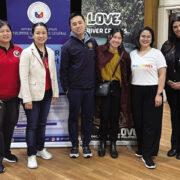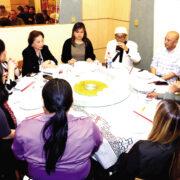SINCE freeing itself from an authoritarian rule three decades ago, the Philippines has enjoyed the restoration of democracy and freedom. However, human rights issues remain prevalent in the country, challenging the commitment of the government and its people to have a collective resolve to uphold human dignity.
On Wednesday, April 13, US Secretary of State John Kerry released the 2015 Country Reports on Human Rights Practices, to provide the US Congress with the status of internationally recognized individual, civil, political, and worker rights as set forth in the Universal Declaration of Human Rights in countries around the world.
“The contents of this report renew our commitment to promoting and protecting universal human rights, to supporting and defending civil society in its peaceful efforts to hold governments accountable, and to working with our partners to advance peace, development, human rights, and democracy,” Kerry said in his statement.
The report acknowledged the gains made by the Philippine government on important human rights issues and highlighted the challenges that continue to exist.
“The most significant human rights problems continued to be extrajudicial killings and enforced disappearances undertaken by security forces, insurgents, and suspected vigilante groups; a weak and overburdened criminal justice system notable for poor cooperation between police and investigators, a meager record of prosecutions and lengthy procedural delays; and widespread official corruption and abuse of power,” the report noted.
“Other human rights problems included allegations of prisoner/detainee torture and abuse by security forces; harassment, including allegations of violence against human rights activists by local security forces; warrantless arrests; lengthy pretrial detentions; overcrowding and inadequate prison conditions; killings and harassment of journalists; mistreatment of internally displaced persons (IDPs); violence against women; abuse and sexual exploitation of children; trafficking in persons; limited access to facilities for persons with disabilities; lack of full integration of indigenous people into political and economic structures; absence of law and policy to protect persons from discrimination based on sexual orientation and gender identity; child labor; and ineffective enforcement of worker rights,” it added.
While the administration of Pres. Benigno Aquino III has made strides in battling impunity, much more is needed to be done to ensure that the perpetrators of human rights violations do not brazenly roam the streets free, and instead be held accountable for their atrocities.
“The government continued to investigate and prosecute only a limited number of reported human rights abuses, including abuses by its own forces, paramilitaries, and insurgent/terrorist groups. Concerns about impunity of national and local government officials, security force members, and powerful business and commercial figures persisted,” the report added.
As the elections draw near, the human rights report implores the country’s incoming leaders to have the political will to make a comprehensive approach in addressing existing human rights violations. They must realize that human rights violations breed through many problems, which are related to the country’s political, economic, social and cultural conditions. (AJPress)





